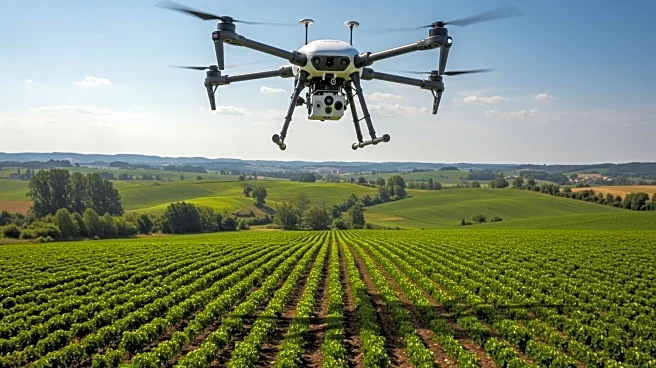What's Happening?
By 2025, over 75% of large farms globally are expected to deploy drones for real-time crop monitoring and analysis, marking a significant shift towards precision agriculture. Drones, equipped with advanced sensor technology and imaging capabilities, are transforming traditional farming practices by enabling precise crop monitoring, targeted input application, and rapid mapping. These technologies allow farmers to optimize crop yields, reduce costs, and promote sustainable farming methods. Companies like Farmonaut are enhancing drone capabilities with satellite-driven insights, providing a comprehensive approach to precision farming.
Why It's Important?
The integration of drones in agriculture is crucial for addressing environmental pressures and economic challenges faced by the farming industry. By enabling precise input application and reducing chemical runoff, drones contribute to more sustainable farming practices. Farmers benefit from improved crop yields and reduced operational costs, while the environment gains from decreased pollution and resource conservation. The widespread adoption of drones also signifies a move towards data-driven agriculture, which can enhance decision-making and improve overall productivity in the sector.
What's Next?
As drone technology continues to advance, the agricultural sector can expect further integration with AI and machine learning to automate operations and enhance data analysis. Government initiatives and incentives may accelerate drone adoption, promoting food security and regional monitoring. The development of eco-friendly drone models and sustainable battery technology will further support the industry's shift towards sustainability. Additionally, the growing market for farm management apps will connect drone data to business intelligence dashboards, providing farmers with comprehensive tools for managing their operations.









